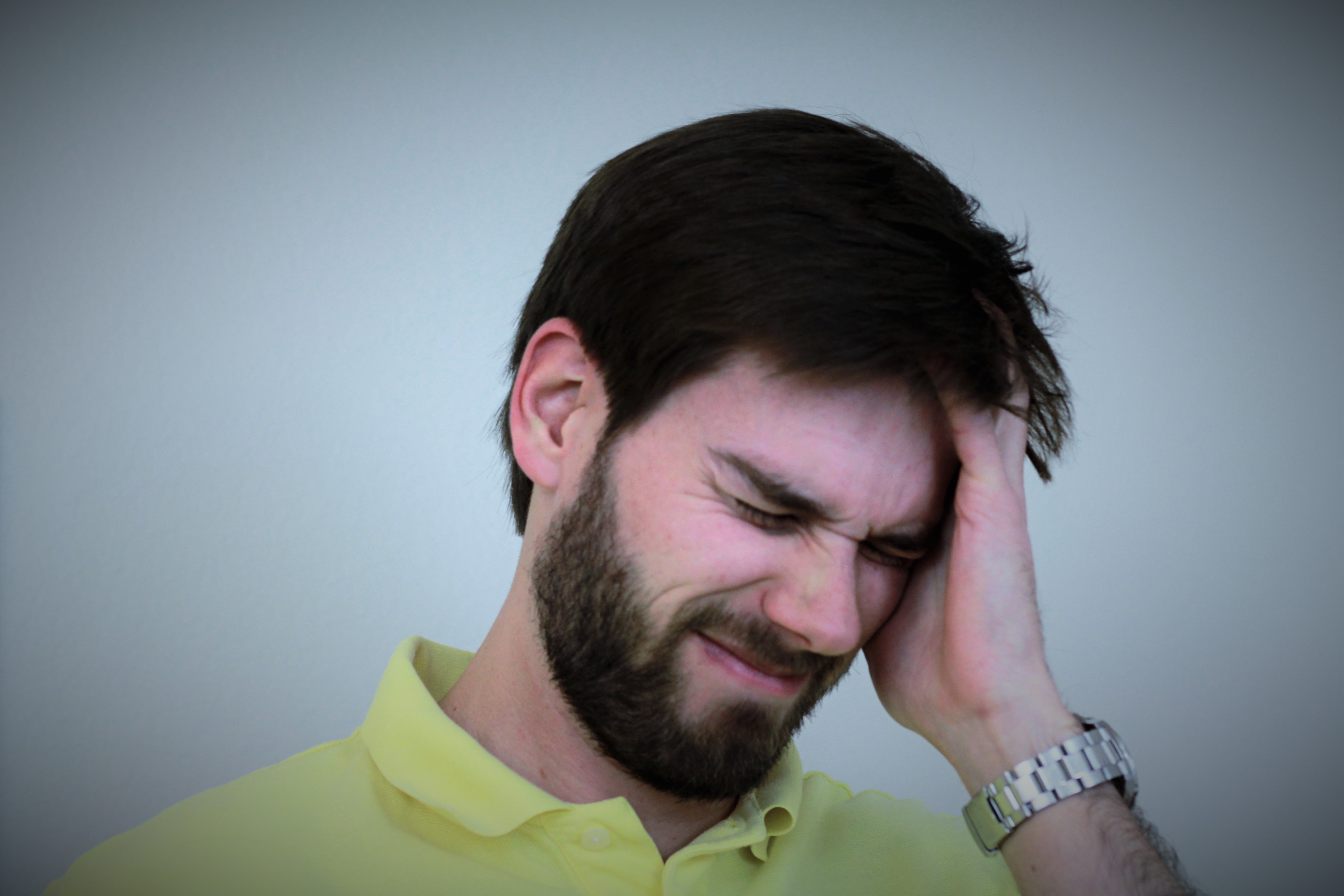It's odd that in our day of modern conveniences it seems that stress is at an all time high. People stress about anything and everything these days, and often look to binge-eating, binge-drinking, binge-watching Netflix, and other substance abuse to counteract the stress.
The problem with substance abuse is that oftentimes you are just making everything worse. You are temporarily blocking stress by replacing it with a different stimulus, but when the stimulus goes away you are just as bad as you were before, if not worse.
The Many Types of Stress
Stress comes in many forms and is experienced by everyone. While financial concerns, especially in bad economies, can be a common source of stress, don't think that simply having more money will make all your problems go away. In my short life I've known many people who have tons of money (at least in my mind) and still stress out about things.
What's important to understand is that not all stress is inherently bad. In many cases, stress can be a sign that you have important things to do. A child probably isn't under much stress because they have few responsibilities, whereas the CEO of a major company would probably be under a great deal of stress.
Stress in many cases goes hand in hand with fear, which I have talked about before. Our fear of not performing up to our perceived potential causes us stress and anxiety, along with our fear of letting others down. It is important, however, to understand how certain fears you have can create stressors in your life.
My Experience with Stress
When I think about the most stressful time in my life (thus far), it was probably during college. Engineering schools are not a very laid-back college experience, and mine was filled with stress related to tests, homework, projects, and lack of women.
Stress, however, was like a drug for me in college. Whenever I felt that I had a mountain of schoolwork to climb, the immense stress I put on myself would hurl me to the top of the mountain like a slingshot. I would go into overdrive mode and find levels of hyperactivity and productivity of which I didn't know I was capable.
During my freshman year I would frequently encounter situations where I figured "it can't possibly get any worse than this." And it did. Time and time again. The funny thing, though, was that even when things got harder, I found that I was more ready for it.
In going through stressful situations, you become more impervious to future stress. This is why Navy SEAL Training is no walk in the park, because the job demands quite a high tolerance for stressful situations.
By the time I was a senior in college, I just sort of stopped getting stressed over things that would have given me a great deal of stress a few years before. The metaphorical battle hardening of the previous years numbed me from certain emotional swings that I had experienced earlier. In time, I just learned to accept the difficulty, accept that things would not always go according to plan, and accept that sometimes the journey is really the most fun part.
Practical Ways of Dealing With Stress
While many people will have a similar experience to mine at some point in their lives and learn how to deal with stresses they encounter, many could probably use a way to speed up this process.
What I've found that helps, and is backed by science, is what I will call "stress vaccination." A vaccine works by injecting yourself with a small amount of a disease, which leads your body to learn how to fight it. Stress works in much the same way.
By purposely subjecting yourself to small amounts of stress, you can increase your resiliency for times when the stress will be much greater. This is where I think living in comfortable settings actually poses a disadvantage to many people, because their lives are basically very stress-free. If every day is a constant fight for survival, then a coworker giving a snide remark does not seem like a big deal in comparison.
I'm not recommending that you should purposely put yourself in life-or-death situations (although it would probably work), but here are some more accessible ways of "stress vaccination":
- Take a cold shower: cold showers are just as awful as you might imagine, but they have a myriad of health benefits. They also increase your tolerance for many everyday forms of stress. I still can't take one in the morning, but they are actually kinda nice after a workout. Plus, afterwards they make you feel incredibly warm and invigorated.
- Exercise: Physical activity has many obvious benefits, but a less obvious one is mental health. My favorite form of exercise is weightlifting, but pretty much anything will do. I do, however, think that the more intense the exercise, the greater the potential stress resiliency. When you are at the bottom portion of a squat with a few hundred pounds on your back and have to summon every fiber of your mental and physical toughness to push it up, it makes you stronger, both physically and mentally.
- Play a Sport: Goes hand in hand with exercise, but with the added element of competition, which creates a lot of little psychological stressors. When I play tennis and have to hit a second serve down break-point, it causes anxiety, but at work the next day when I have to get a million things done, I'm not as stressed about doing them.
- Learn a New Motor Skill: You will have to do this for most sports, but even if you don't play a sport you can still try to learn some new motor skills. Try things like pen spinning, juggling, cup stacking, magic tricks, etc. You probably know things of that nature are incredibly frustrating to learn, but once you learn them they are quite rewarding.
- Try a 24 Hour Fast: I've never actually done this, but I've been meaning to for a while. Going without food for a day will probably give you some mental toughness, and also might help you drop a pound or two. Note that I am not recommending anorexia, if you do a fast you still go back to a normal diet afterwards, and don't fast more than once a week.
- Get in Touch with Nature: I try to go for a hike every now and then, which is both relaxing and can also be stressful at times...especially if you run out of water in the middle of the desert. Many experts recommend to never hike alone, which is good safety advice, but I've found that short, easy hikes alone can be quite good for mental health. Just always know what you are getting into and use good judgement. If you live in an urban environment then walking in a park is the next best thing.
On the other end of the spectrum, you can fight stress by putting yourself in calming situations, such as:
- Meditation: Something I should do more of, because there are a lot of reasons to say ohmmmm
- Arts and Crafts: Doing any form of art is pretty calming, especially if you throw on some soothing music while you do it
- Writing: I find writing for this website to be pretty therapeutic. It focuses my mind and creative energies on something other than work or life
- Yoga: Sort of a combo of meditation and exercise; improves your physical and mental health
- Cooking: I find cooking to be very calming and exciting at the same time. It is also a nice bonus that you get to eat the fruits of your labor
Remember that these are merely suggestions, it's up to you to find things that help you to deal with your stress in a way that works for you.
Conclusion
Stress is inevitable, and if you feel that you aren't under a lot of stress then maybe you should consider the possibility that you might not be exerting yourself enough. If you find that you are constantly over-stressed, then maybe think about some ways you can ease things up in your life.
While doing the things above isn't a sure-fire way to "cure" stress in your life, I think you'll find that it can help tremendously.
At the end of the day, most of the things I recommend have to do with shifting your mindset from consumption to production. Many people's methods of de-stressing involve consumption of things like television, alcohol, or food, which can lead you feeling more empty than you were before.
By doing things like art or sports, you will still consume things, but you also produce new and exciting things like a beautiful painting or a better physique. As humans we have an innate urge to produce, and while the production of things should in theory occur at your job, many jobs in the techno-service industry don't give quite the immediate satisfaction of creation as, say, building a birdhouse.
Stress is not all that bad, and if you are a little bit of a masochist and prepare yourself for it, then you will embrace stress as merely an opportunity to show the world what you are capable of.




